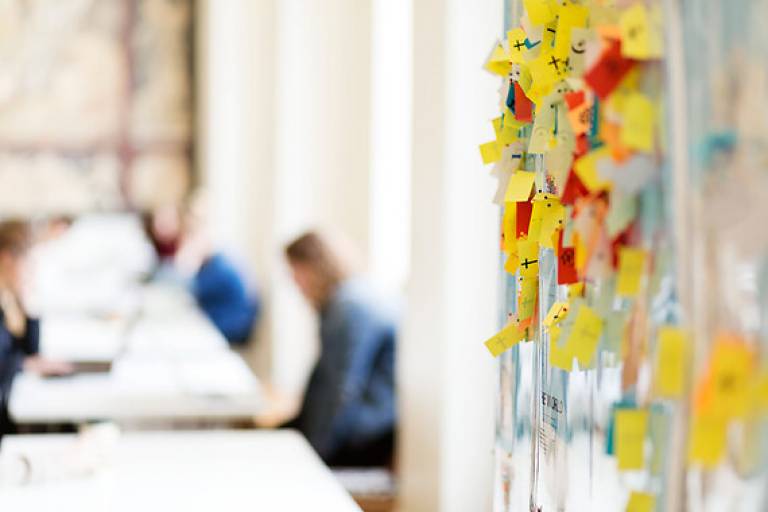
Loizos Lambis, a final year student at the IOE, has identified 6 key factors to think about when tackling your final year project, and where to go to to get additional resources and support.
Please note: Final year projects vary greatly by discipine. Always follow the guidelines set by your programme/department and seek support from your project supervisor if you have any questions about yoru final year project.
1. Time management
Managing your time will be crucial on your way to achieving a grade you'll be happy with for your final year project. The Open University offers a comprehensive guide for managing your time effectively according to your needs. The guide considers distractions and procrastinations and includes short videos in each section. The skill of time management is also highly valued by employees and will be useful when proceeding to a Masters or Phd degree.
2. Choosing your literature
There may be hundreds of thousands of literature pieces related to a particular topic. Choosing the most relevant and important literature for a final year project can be a challenging and daunting task. UCL Library Services have put together a range of resources and videos for developing an effective search strategy. These enable students to carefully plan their search and easily identify the appropriate literature.
3. Research methodology
All final year projects involve dealing with and/or interpreting some form of data. Choosing an appropriate research method will enable you to arrive at conclusions for your research question. An exhaustive list of research methods and how to carry them out can be found online at SAGE Publishing. These methods are suitable for any kind of data ( quantitative, qualitative, primary, secondary)
4. Proper academic writing
Your final year project is the culmination of your undergraduate degree and thus requires a high standard of academic writing. The IOE Writing Centre offers plenty of resources for academic writing, including workshops and 1-to-1 tutorials. These resources thoroughly explain how to critically read and write, structure and edit your paper, and ensuring the text is clear and concise. Proper academic writing is the backbone of your final year project, therefore frequent writing practice and feedback are highly encouraged.
Also remember to refresh and familairise yourself with the principles of academic integrity to ensure you are being honest in your academic work, and formally recognising and referencing the existing knowledge and ideas on which your work is based. If you do not acknowledge the work or ideas of others, you could be penalised for Academic Misconduct.
5. Creating a readable document
The presentation of your final document is crucial for ensuring that your work is readible and sensible to all kinds of readers. The ISD's section on 'creating accessible content' includes a set of principles for creating word processed documents. These place emphasis on alignment, font, formatting, spacing, layout, printing and sharing. The specific section refers to Microsoft Word documents, how to convert to/create PDF documents.
6. Binding
Binding your document is the final stage of your Final Year Project before submission. All UCL undergraduate dissertations must meet certain specifications irrespective of programme of study. A list of companies providing binding services can be found online on UCL's 'Research Assessments' Section. Check with your department before proceeding with binding.
 Close
Close

